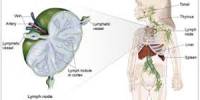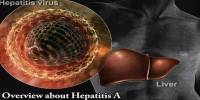Researchers at the Li Ka Shing Faculty of Medicine of The University of Hong Kong (HKUMed), Department of Microbiology, School of Clinical Medicine, have shed light on the mechanism by which coronaviruses like SARS-CoV-2, SARS-CoV-1, and MERS-CoV take advantage of a host protease called “cysteine-aspartic protease 6” (caspase-6) for effective replication.
Peer-reviewed results have just been approved for publishing in the prestigious scientific journal Nature.
Background
The ribonucleic acid (RNA) of coronaviruses causes the host cells to become infected, at which point the infected cells secrete interferons, which can prevent viral replication within the infected cells and lessen the likelihood that other uninfected cells will become infected.
The host cells will also go through a process called apoptosis, which is a type of programmed cell death that stops cells from becoming factories for viral reproduction. Therefore, in human and animal cells, the interferon response and apoptotic process are the most crucial anti-virus mechanisms.
Cysteine-aspartic protease causes apoptosis in both human and animal cells, which kills infected cells and prevents the spread of viruses. In a variety of cell lines, human ex vivo lung tissue, human intestinal organoids, and animal models, the HKUMed team examined the effect of caspase-6 on coronavirus replication.
The researchers discovered that overexpressing caspase-6 effectively increased coronavirus replication while pharmacological inhibition or gene deletion of caspase-6 greatly reduced coronavirus replication.
Research methodology and findings
Chemical inhibitors of caspase-6 greatly increased mouse survival from 33.3% to 80% and significantly reduced the replication of the mouse-adapted MERS-CoV (MERS-CoVMA).
Furthermore, in the lungs of caspase-6 mutant animals, MERS-CoVMA replication and MERS-CoVMA-induced lung damage were significantly diminished. Similar to this, the specific pharmacologic inhibitor against caspase-6 decreased the replication of SARS-CoV-2 and the inflammatory lung damage that goes along with it in a hamster model.
But how does the coronavirus harness caspase-6 to its benefit?
The most crucial and immediate host cell defense against viruses is the interferon response, it should be noted.
We conducted additional research, which showed that caspase-6 cleaved the coronavirus nucleocapsid (N) proteins, resulting in N fragments that engage with the host “interferon regulatory factor 3 (IRF3)” and prevent it from entering the cell nucleus to start the interferon response.
As a result, the viral N segments function as interferon antagonists, promoting viral replication.
Significance of the study
The study demonstrates how coronaviruses have changed over time to become powerful pathogens. We describe a novel mechanism by which coronaviruses exploit a new class of host protease, caspase-6, originally used by the host to carry out cell apoptosis as a defense against virus infection, for its own purpose of improving viral replication. This mechanism reveals how coronaviruses overcome the antiviral defense of interferon response by the host cells.
These findings further imply that medications can be developed to target caspase-6, which may turn into a potential point of antiviral intervention for all recognized human coronavirus infections.
About the research team
The research is led by Dr. Chu Hin, Assistant Professor; Dr. Jasper Chan Fuk-woo, Clinical Associate Professor and Professor Yuen Kwok-yung, Henry Fok Professor in Infectious Diseases, Chair Professor of Department of Microbiology, School of Clinical Medicine, HKUMed, Director of the State Key Laboratory of Emerging Infectious Diseases and Academician of the Chinese Academy of Engineering.
















